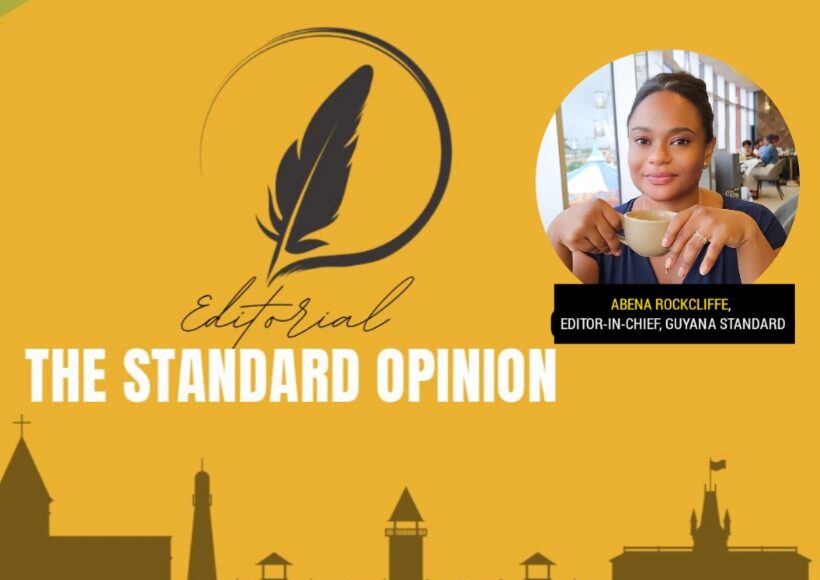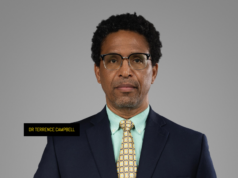By Abena Rockliffe
While enslaved Africans led the way, white people played a significant role in the abolition of slavery. Conversely, enslaved Africans, particularly those allowed to work in the big house, played a role in the sustenance of the institution.
Knowing this, I never subscribed to the belief that one has to look like me to represent my interests. I also do not believe that because you look like me or we share another defining human factor, you are automatically for me. By this, I mean I do not believe only black leaders can adequately understand the black man’s plight, or that only women can champion women’s rights. Nevertheless, I believe that identifying with me can be a useful tool. Furthermore, I understand the need for representation in the context of inspiration, and more specifically, that lived experience is crucial.
Following India’s Prime Minister, Narendra Modi’s visit to Guyana last year, The Economic Times reported him saying “A mini-India exists in Guyana” where people of “Indian origin have become leaders in politics, business, education and culture.” This I find to be a good example of why representation is important, it can be the pride of a people, or particular group.
Further to this is the fact that Guyana is a multi-racial society and even though it might not be the prevailing mode around Christmas or cricket seasons, Guyana continues to be a segregated society, especially racially.
These and other factors give reason for the insistence of political parties to draw delegates and candidates from all ethnic groups and regions to hold a spot in the central government. Recently, this matter was brought to the fore by Dr. David Hinds, who dubbed the practice “ethnic window dressing.” Before then, when talking about this in public spaces, Guyanese would mostly use terms like “diversity” and “representation.”
Be it for reasons of window dressing, or a deeper ideology of true representation, the People’s Progressive Party (PPP) has been most consistent in this practice. Since 1992, when the Dr. Cheddi Jagan and Samuel Hinds ticket won the election, the PPP has never deviated from the Indian president, black prime minister ticket.
In 1992, when it was defeated, PNC had two black men for president and prime minister, Desmond Hoyte and Hamilton Greene. Every election since, PNC followed suit. Therefore, it is easy to conclude that politicians across the divide in Guyana, agree with the mixed formula for the two top spots in government. Voters probably saw this as representation.
But when Dr. Hinds spoke about the practice in its rawest term, window dressing, it made me think, is it really just window dressing? When someone speaks of window dressing, it connotes an act being done in order to create a good impression to prevent people from realizing a harsh truth.
What is the harsh truth in this context? Those who participate in window dressing, ethnic or otherwise, do not often champion the cause of the people they are purported to represent and consequently, do not enjoy their support.
When Dr. Hinds spoke of it, he was referring to the likes of Daniel Seeran and Geeta Chandan-Edmond, both APNU candidates who defected to the PPP/C.
While in APNU, how did these people rep for their constituency? During her last speech in the National Assembly, Chandan- Edmond spoke extensively about her Chesney, Berbice roots. She said too, “I am a product of the sugar plantation. I am a child of Chesney, Albion. We are strong, and we are resilient.” In 2017, APNU+AFC Government closed the Wales, Enmore and Rose Hall sugar estates. This resulted in the loss of approximately 7000 jobs. Her comments could have slipped through the cracks. But I couldn’t find any commentary made by Chandan-Edmond when her party acted in that manner. At the time, she sat as Legal Advisor in the Ministry of the Presidency.
Sydney Allicock was Vice President of the APNU+AFC government when Amerindian land titling took a backseat with claims that key investigative reports and demarcations, initiated before 2015, were left untouched.
The aforementioned examples are of those used for “ethnic window dressing” when a traditionally black-dominated political party, APNU, held power.
In a PPP/C government, there are seven black ministers, many of whom are hesitant to acknowledge that blacks receive a disproportionately small share of the nation’s economic pie.
In my own experience, I have had Indian leaders in the PPP being more responsive whenever petitioned about an issue whether personal or on the behalf of another Guyanese. In fact, there was an opportunity for which I was recommended by an indo-Guyanese politician in the PPP. This opportunity is no special favor or anything of which I am not entitled. A black brother was given the charge to see it through, but that opportunity was never realized to the magnitude of which it was intended. That’s the reality of these “window dressing/ representation” dynamics.
Maybe that stands to reason why the window dressing tactics are not more successful. For most of its time in office over the past two decades, the PPP had black men from Linden holding the second highest office in the land. But the party only recently started making inroads in black communities, particularly Linden.
These results are due to the works and directives of PPP/C General Secretary, Bharrat Jagdeo, who made no secret of his desire to attract more black party members and supporters.
During conversations with black brothers and sisters, many of them feel as if they are in better financial positions than ever before. They believe this fact can be attributed to two factors: oil and a decision from the very top to give black people just a bit more than they usually receive. Some might call this a good start.













